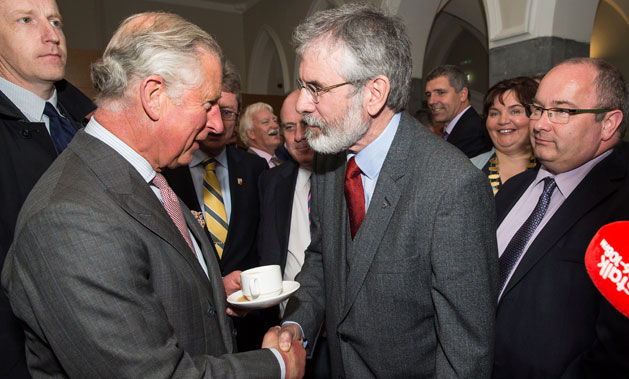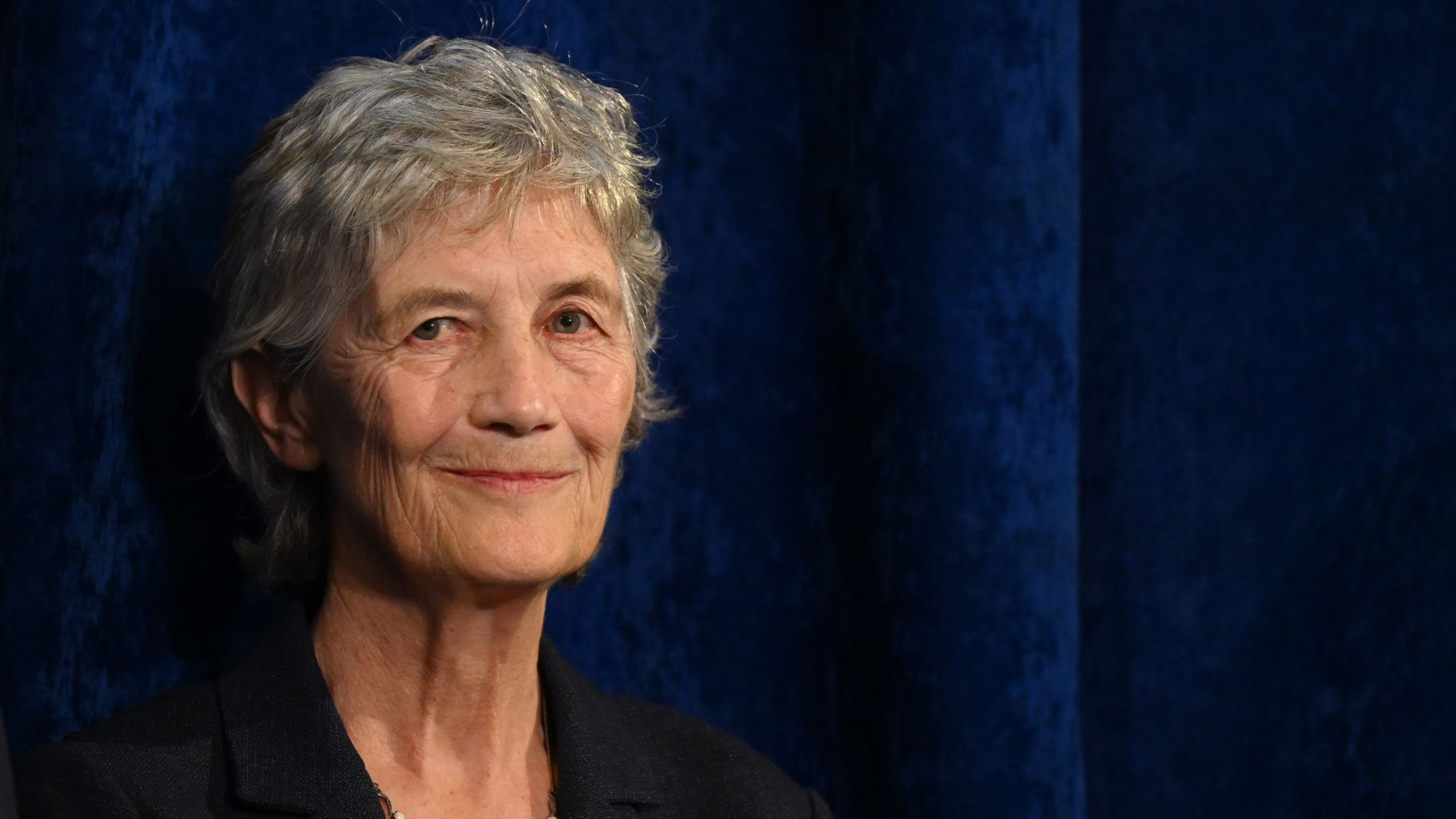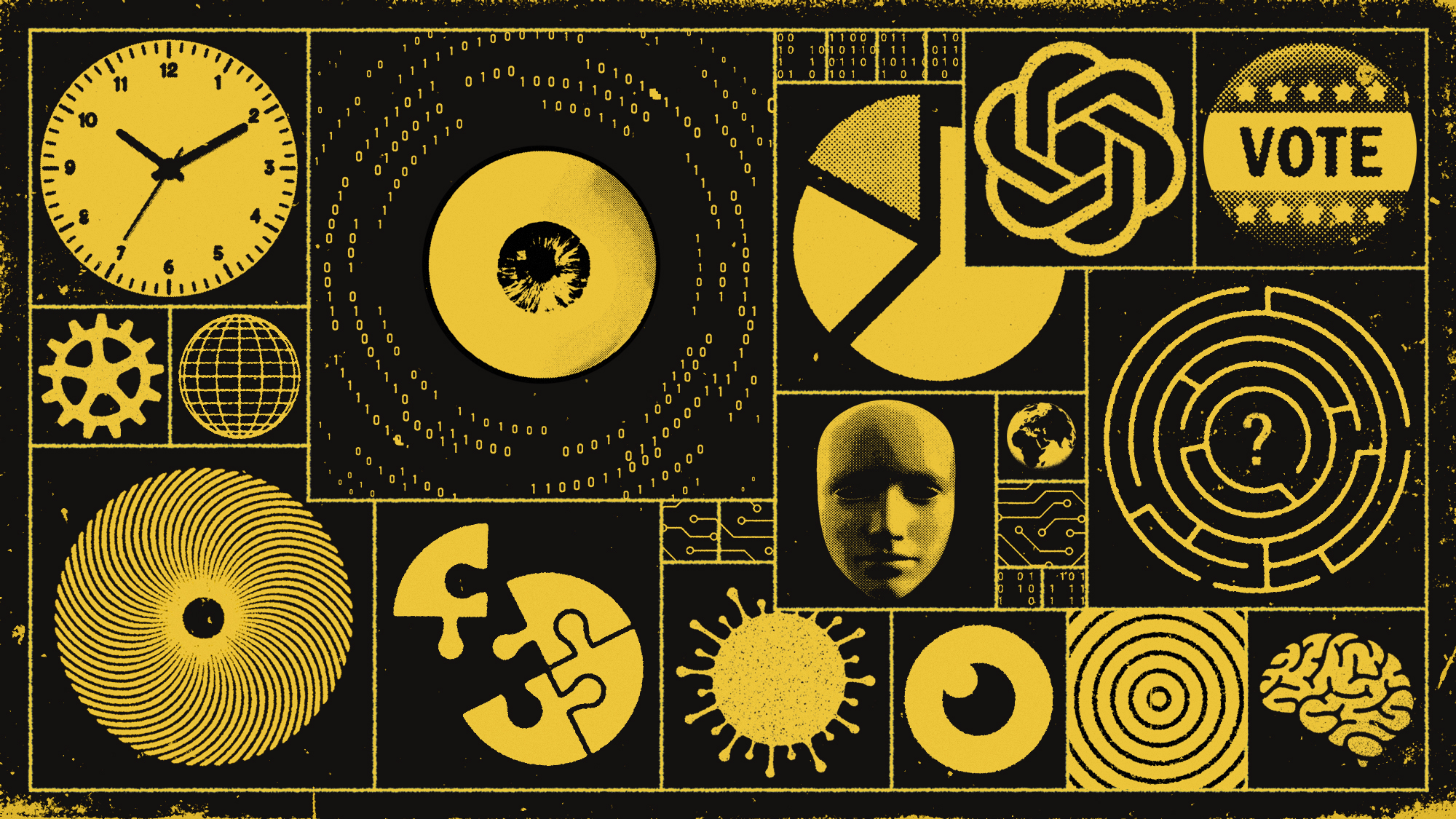Prince Charles shakes Gerry Adams' hand in 'teatime miracle'
Prince of Wales and Sinn Fein leader express regret for the past and talk of need to move forward

A free daily email with the biggest news stories of the day – and the best features from TheWeek.com
You are now subscribed
Your newsletter sign-up was successful
Prince Charles shook hands with Gerry Adams in the first meeting between a member of the Royal family and a Sinn Fein leader in the Irish Republic.
The Prince of Wales visited the National University Ireland Galway yesterday to meet Ireland's political leaders, including Sinn Fein president Gerry Adams and deputy first minister Martin McGuiness.
BBC royal correspondent Peter Hunt notes that the heir to the throne was carrying "that most English of things – a cup of tea" during the handshake, which lasted "some 12 seconds".
The Week
Escape your echo chamber. Get the facts behind the news, plus analysis from multiple perspectives.

Sign up for The Week's Free Newsletters
From our morning news briefing to a weekly Good News Newsletter, get the best of The Week delivered directly to your inbox.
From our morning news briefing to a weekly Good News Newsletter, get the best of The Week delivered directly to your inbox.
Hunt points out that 30 years ago, when Prince Charles first came to Ireland, republicans were demanding that he apologise for the killing by paratroopers of 14 civilians on Bloody Sunday. But this time they have been talking about reconciliation.
In a private 20-minute meeting following the handshake, Adams said that he, McGuiness and the Prince had expressed their regret for what happened from 1968 onwards and spoke of a need to move forward.
The Times described the "emotional significance" of the meeting as even greater than the "historic" moment when the Queen shook hands with former IRA leader McGuinness in Belfast in 2012 and said it was widely regarded as the next phase in the "ever-deepening relationship" between Britain and Ireland.
Neverthless, a small number of demonstrators protested against the meeting, including families of nationalists killed by British soldiers.
A free daily email with the biggest news stories of the day – and the best features from TheWeek.com
Adams had been accused of ramping up tension ahead of the meeting, referring to Prince Charles as the colonel-in-chief of the Parachute Regiment, which he said was "responsible for the killing of many Irish citizens including in Derry, Ballymurphy, Springhill and other communities across the north". However, Adams also noted that Charles had been "bereaved by the actions of republicans" and that there was a responsibility on everyone to promote reconciliation and healing.
Prince Charles is today travelling with the Duchess of Cornwall to the west of Ireland, where his great uncle Lord Louis Mountbatten was assassinated by the IRA in 1979.
"Lord Mountbatten was a hugely influential figure in [Prince Charles's] life, and after his murder in August 1979, when a bomb on his boat killed him and three others less than 600 metres from the harbour, he wrote in his journal of a 'fierce and violent determination to see that something was done about the IRA'," notes The Times, which was among several newspapers to praise the Prince for putting aside his personal grief in pursuit of peace.
"Once the images were of soldiers in armoured cars and bomb-shattered pubs," says Jonathan Jones in The Guardian. "Now we watch two men, both getting older, shaking hands, their words a murmured secret reconciliation. In all the bloody scenes of this unforgiving world, this was a teatime miracle."
-
 Why is the Trump administration talking about ‘Western civilization’?
Why is the Trump administration talking about ‘Western civilization’?Talking Points Rubio says Europe, US bonded by religion and ancestry
-
 Quentin Deranque: a student’s death energizes the French far right
Quentin Deranque: a student’s death energizes the French far rightIN THE SPOTLIGHT Reactions to the violent killing of an ultraconservative activist offer a glimpse at the culture wars roiling France ahead of next year’s elections
-
 Secured vs. unsecured loans: how do they differ and which is better?
Secured vs. unsecured loans: how do they differ and which is better?the explainer They are distinguished by the level of risk and the inclusion of collateral
-
 How corrupt is the UK?
How corrupt is the UK?The Explainer Decline in standards ‘risks becoming a defining feature of our political culture’ as Britain falls to lowest ever score on global index
-
 The high street: Britain’s next political battleground?
The high street: Britain’s next political battleground?In the Spotlight Mass closure of shops and influx of organised crime are fuelling voter anger, and offer an opening for Reform UK
-
 Is a Reform-Tory pact becoming more likely?
Is a Reform-Tory pact becoming more likely?Today’s Big Question Nigel Farage’s party is ahead in the polls but still falls well short of a Commons majority, while Conservatives are still losing MPs to Reform
-
 Meet Ireland’s new socialist president
Meet Ireland’s new socialist presidentIn the Spotlight Landslide victory of former barrister and ‘outsider’ Catherine Connolly could ‘mark a turning point’ in anti-establishment politics
-
 Believe it when AI see it: is this a deepfake turning point in politics?
Believe it when AI see it: is this a deepfake turning point in politics?Today’s Big Question AI ‘slopaganda’ is becoming a ‘feature’ of modern elections
-
 Taking the low road: why the SNP is still standing strong
Taking the low road: why the SNP is still standing strongTalking Point Party is on track for a fifth consecutive victory in May’s Holyrood election, despite controversies and plummeting support
-
 What difference will the 'historic' UK-Germany treaty make?
What difference will the 'historic' UK-Germany treaty make?Today's Big Question Europe's two biggest economies sign first treaty since WWII, underscoring 'triangle alliance' with France amid growing Russian threat and US distance
-
 Is the G7 still relevant?
Is the G7 still relevant?Talking Point Donald Trump's early departure cast a shadow over this week's meeting of the world's major democracies